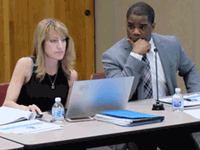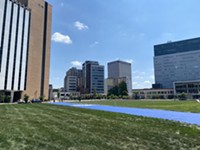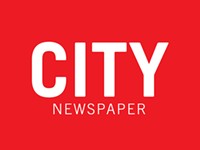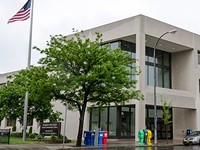[
{
"name": "500x250 Ad",
"insertPoint": "5",
"component": "15667920",
"parentWrapperClass": "",
"requiredCountToDisplay": "1"
}
]
What kind of city should Rochester be? What kind of downtown?
I keep coming back to those questions because Rochester seems to be at an important turning point right now. Investors continue to be interested in development in the city, particularly downtown. And if downtown grows stronger, the rest of the city may, too.
But that isn't guaranteed. If downtown becomes primarily a home for upper-income residents, less affluent people will be kept out. Some of Rochester's current new downtown development includes affordable housing, but not all of it. And the redevelopment of the Cadillac Hotel is resulting in the loss of low-income units.
Rochester has a serious affordable housing shortage. Who should build more? Who'll pay for it? Where should it go? Who makes sure it's of good quality?
We're not the only city wrestling with these questions. Cities like New York, San Francisco, and Seattle have a severe housing crisis, brought on by strong growth in both economy and population. In all three cities, many residents have been priced out of the housing market in neighborhood after neighborhood.
Rochester's affordable housing problem isn't that extreme, but it's serious, and so far we haven't developed a comprehensive, community-wide plan to deal with it.
Affordable housing is a big topic right now in publications that concentrate on urban issues. In a series of CityLab articles, excerpted from his book "The New Urban Crisis," Richard Florida has argued that as US cities prosper, we need to make sure everyone benefits.
Florida has made a name for himself by urging city leaders to attract what he calls the "creative class" – tech workers, "knowledge workers," artists. In an April 2017 CityLab article, "The Roots of the New Urban Class," he admitted that focusing exclusively on attracting "creatives" has had a dark side, resulting in gentrification, higher housing costs, and inequality.
In a May CityLab 2017 article, he warned against what he called "winner-take-all urbanism," in which, he says, some places benefit from the new growth "while many more stagnate or fall further behind."
"If we are to again enjoy a widely shared and sustainable prosperity," Florida wrote, "we must become a more fully and fairly urbanized nation."
Florida has developed a strategy he's calling "urbanism for all," and he has set out five "pillars" – ways to achieve it. Among them: "Build more affordable rental housing."
Making sure that cities are inclusive is critical, he says. And, he wrote in a May 2018 CityLab article, "Revisiting the New Urban Crisis": "It will require all of the parties that were involved in the urban revival to reorient their missions toward inclusivity."
Universities and medical centers, Florida pointed out, have played a big role in revitalizing cities. (That's certainly been the case in Rochester.) But, Florida said, "too often, the changes they produce only benefit the affiliates of those institutions. Instead of providing subsidized housing to faculty and students, universities should also help local residents afford increasingly desirable areas."
Developers – "who have benefited so mightily from the urban revival and the subsequent rise in real estate values" also have to be involved, Florida said, so that their development areas don't become "isolated pockets of wealth."
Developers, he said, could set aside some of their units for affordable housing in exchange for incentives, for instance. And local businesses can work with non-profits and city governments to create affordable and low-income housing.
Rochester activists have been pushing city officials to rethink their approach to downtown development, and some officials seem receptive. As I mentioned in a previous column, the uncertainty about the Morgan apartment proposal at Parcel 5 provides a good opportunity to slow down and assess where downtown is heading.
Articles like Florida's can provide some outside perspective. So, too, can the work taking place in other cities. Among them, Detroit, which I'll bring up in a future column.
I keep coming back to those questions because Rochester seems to be at an important turning point right now. Investors continue to be interested in development in the city, particularly downtown. And if downtown grows stronger, the rest of the city may, too.
But that isn't guaranteed. If downtown becomes primarily a home for upper-income residents, less affluent people will be kept out. Some of Rochester's current new downtown development includes affordable housing, but not all of it. And the redevelopment of the Cadillac Hotel is resulting in the loss of low-income units.
Rochester has a serious affordable housing shortage. Who should build more? Who'll pay for it? Where should it go? Who makes sure it's of good quality?
We're not the only city wrestling with these questions. Cities like New York, San Francisco, and Seattle have a severe housing crisis, brought on by strong growth in both economy and population. In all three cities, many residents have been priced out of the housing market in neighborhood after neighborhood.
Rochester's affordable housing problem isn't that extreme, but it's serious, and so far we haven't developed a comprehensive, community-wide plan to deal with it.
Affordable housing is a big topic right now in publications that concentrate on urban issues. In a series of CityLab articles, excerpted from his book "The New Urban Crisis," Richard Florida has argued that as US cities prosper, we need to make sure everyone benefits.
Florida has made a name for himself by urging city leaders to attract what he calls the "creative class" – tech workers, "knowledge workers," artists. In an April 2017 CityLab article, "The Roots of the New Urban Class," he admitted that focusing exclusively on attracting "creatives" has had a dark side, resulting in gentrification, higher housing costs, and inequality.
In a May CityLab 2017 article, he warned against what he called "winner-take-all urbanism," in which, he says, some places benefit from the new growth "while many more stagnate or fall further behind."
"If we are to again enjoy a widely shared and sustainable prosperity," Florida wrote, "we must become a more fully and fairly urbanized nation."
Florida has developed a strategy he's calling "urbanism for all," and he has set out five "pillars" – ways to achieve it. Among them: "Build more affordable rental housing."
Making sure that cities are inclusive is critical, he says. And, he wrote in a May 2018 CityLab article, "Revisiting the New Urban Crisis": "It will require all of the parties that were involved in the urban revival to reorient their missions toward inclusivity."
Universities and medical centers, Florida pointed out, have played a big role in revitalizing cities. (That's certainly been the case in Rochester.) But, Florida said, "too often, the changes they produce only benefit the affiliates of those institutions. Instead of providing subsidized housing to faculty and students, universities should also help local residents afford increasingly desirable areas."
Developers – "who have benefited so mightily from the urban revival and the subsequent rise in real estate values" also have to be involved, Florida said, so that their development areas don't become "isolated pockets of wealth."
Developers, he said, could set aside some of their units for affordable housing in exchange for incentives, for instance. And local businesses can work with non-profits and city governments to create affordable and low-income housing.
Rochester activists have been pushing city officials to rethink their approach to downtown development, and some officials seem receptive. As I mentioned in a previous column, the uncertainty about the Morgan apartment proposal at Parcel 5 provides a good opportunity to slow down and assess where downtown is heading.
Articles like Florida's can provide some outside perspective. So, too, can the work taking place in other cities. Among them, Detroit, which I'll bring up in a future column.
Speaking of...
Latest in Urban Journal
More by Mary Anna Towler
-

Police reform: advocates on what should come next
Oct 22, 2019 -

Court clears the way for Police Accountability referendum
Oct 17, 2019 -

Dade outlines initial actions on district deficit
Oct 9, 2019 - More »








